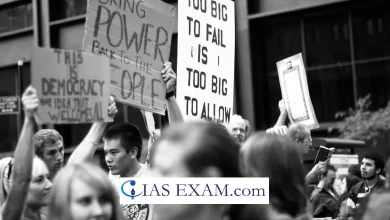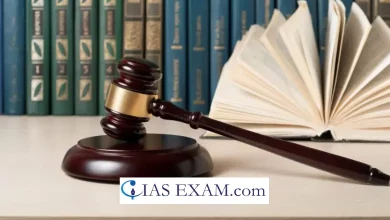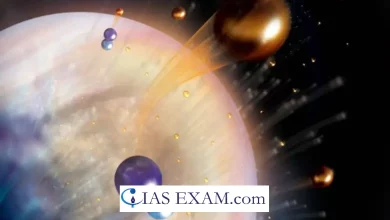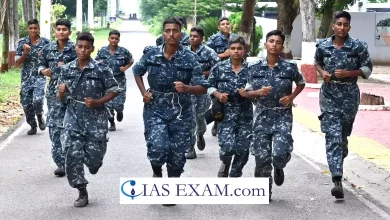Daily Current Affairs for UPSC
Model Code of Conduct (MCC)
Syllabus: Polity and Governance[GS Paper-2]
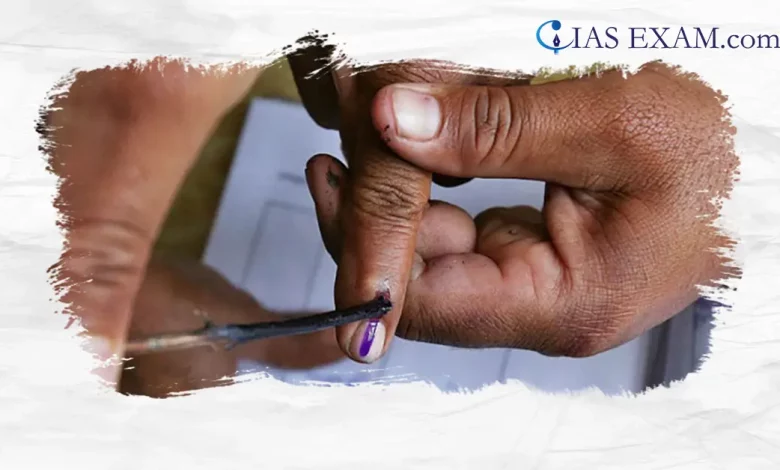
Context: An Indian delegation is preparing to travel to London to finalise a free trade agreement with the UK before the upcoming general elections trigger the Model Code of Conduct.
About Model Code of Conduct (MCC)
- The MCC is a set of guidelines created by the Election Commission of India to regulate the behaviour of political parties and candidates during elections.
- Its main purpose is to ensure that the EC can carry out free and fair elections.
- The MCC is applicable from the announcement of the election schedule until the announcement of the election results.
- The Model Code of Conduct (MCC) is not supported by law but is strongly upheld by the Election Commission (EC).
- Some provisions of the MCC can be enforced through other existing laws such as the Indian Penal Code (IPC), Criminal Procedure Code (CrPC), and Representation of the People Act (RPA).
- In 2013, the Standing Committee on Personnel, Public Grievances, Law and Justice suggested making the MCC legally binding.
- However, the Election Commission of India (ECI) opposes this idea, stating that elections are of short duration and legal proceedings take a long time.
Model Code of Conduct (MCC) is a set of guidelines for political parties and candidates
- The campaign conduct guidelines state that political parties can criticise opponents based on policies and past records, but they are not allowed to use caste or communal feelings or spread unverified reports.
- They must inform the police of any meetings for security purposes and avoid clashes between candidates’ processions. Burning effigies of other party members is also prohibited.
- Only voters and authorised party workers can enter polling booths and they must wear proper identification.
- Ministers in power cannot combine official visits with election work or use official resources for campaigning.
- The party in power cannot use public funds or media for self-promotion and cannot make promises of financial grants or infrastructure projects during the election period.
- Manifestos should align with the Constitution, avoid influencing voters, and provide a rationale for their promises.
- They cannot be released during the prohibited period.
- Recent additions to the guidelines include regulating opinion polls and exit polls, prohibiting unapproved print media advertisements on polling day, and restricting government advertisements featuring political functionaries during the election period.
Challenges and Limitations of the MCC:
- The MCC has not been effective in preventing various forms of electoral misconduct, including hate speech, fake news, voter intimidation, and violence.
- The use of new technologies and social media has made it difficult for the ECI to address the spread of misinformation during elections.
- The MCC is not legally binding and relies on moral persuasion, making it less effective in preventing electoral misconduct.
- The MCC also places limitations on policy decisions and public spending, which can impact development activities and public interest.
- The timing of the MCC’s application has been criticised, affecting the timing of development activities.
- There is also a lack of awareness and understanding of the MCC among voters, candidates, parties, and government officials, leading to non-compliance with its provisions.
Source: The Indian Express
Also Read: Model Code of Conduct and its Significance
UPSC Mains Practice Question:
Q. Discuss the role of the Election Commission of India in the light of the evolution of the Model Code of Conduct. (2022)





.png)
